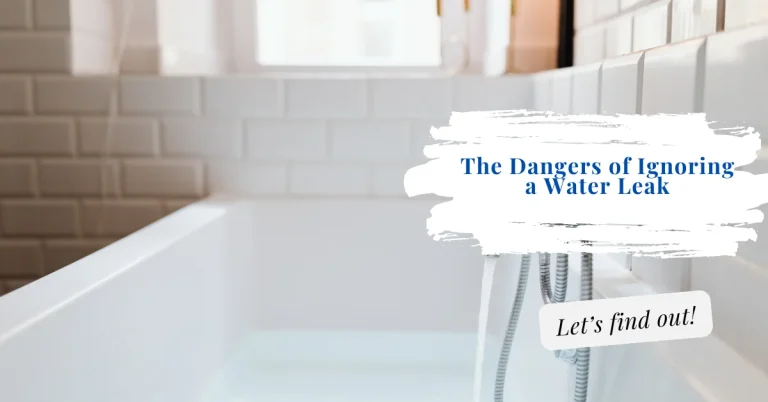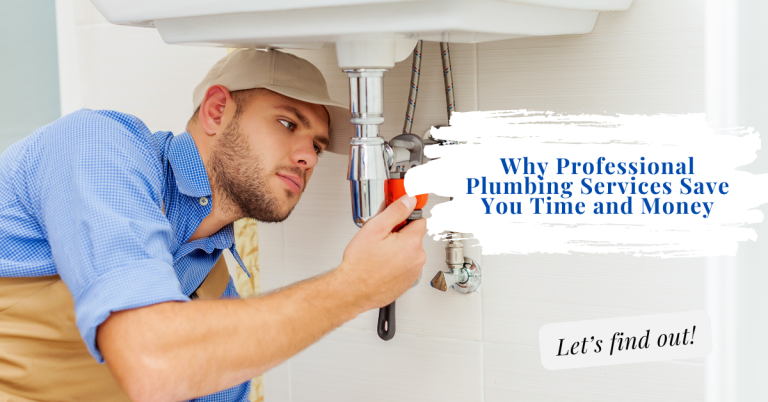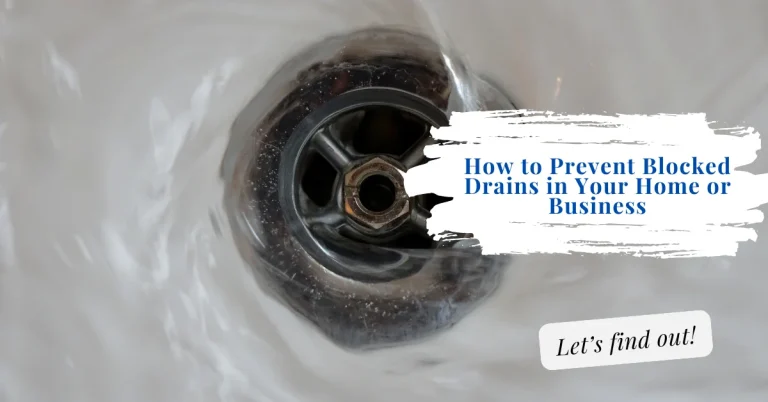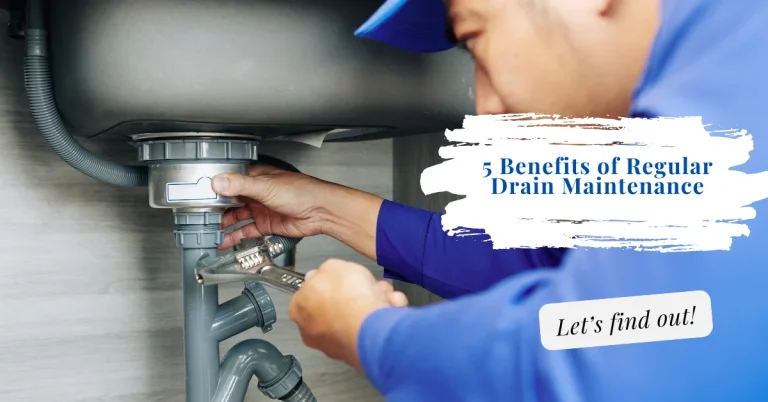Slow drains can be one of the most frustrating household problems. Whether in the kitchen sink, bathroom, or shower, a slow drain can quickly become a major inconvenience if not addressed promptly.
Not only does it hinder your daily routine, but it could also indicate a more significant issue lurking within your plumbing system. In this blog, we’ll explore the most common causes of slow drains and provide practical solutions to help you resolve them.
1. Hair Buildup
Hair buildups rank among the leading causes of slow-moving drains, with bathrooms taking the front row. As time progresses, hair naturally builds up inside the drain and mixes with a scum of soaps and other debris to result in blockage and harnessing flowing water.
How to Resolve
To tackle hair buildup, start by removing any visible hair near the drain opening. For deeper clogs, use a drain snake or a bent wire hanger to reach further into the pipe and pull out the hair.
Mix vinegar and baking soda to clean the drains and help dissolve any remaining buildup. If hair clogging is an issue, consider using a drain catcher.
2. Soap Scum and Grease
Soap scum and grease are notorious for causing slow drains, particularly in the kitchen and bathroom. When soap mixes with minerals in the water, it creates a sticky residue that clings to the walls of your pipes.
Over time, this residue accumulates, narrowing the passage for water to flow through.
How to Resolve
Pour a pot of boiling water directly down the drain to melt it into the pipe. Dissolve the scum, old soap, and accumulated grease with a solution of one-half cup baking soda and one-half cup vinegar; let it sit for about 15 minutes. Further flush the lines with hot running water.
Regular maintenance with enzyme-based cleaners can also help prevent future clogs by breaking down organic materials in the drain.
3. Food Waste and Coffee Grounds
In the kitchen, food waste and coffee grounds are frequent offenders when it comes to slow drains. Despite having a garbage disposal, certain foods like rice, pasta, and fibrous vegetables can expand and cause blockages.
Coffee grounds, though small, can clump together and create significant obstructions in your pipes.
How to Resolve
Do not put food wastes and coffee grounds down the drain; throw them away in a dustbin or on a compost. If there is a blockage, many times a plunger will dislodge the obstruction.
For those nastier clogs, use a drain snake—a long tool especially for cleaning drains. Run cold water while working the disposal to try and help waste travel further through pipes.
4. Mineral Buildup
In the event that the water in your area is of hard nature, then mineral buildup could be the culprits of slow drains. Such water has high concentrations of calcium and magnesium that deposit inside your pipes. These deposits will accumulate over time and constrict the flow of water.
How to Resolve
To address mineral buildup, you can use a commercial descaling agent designed to dissolve calcium and magnesium deposits. Another option is to install a water softener, which reduces the mineral content in your water supply, helping to prevent buildup in the first place. Regularly flushing your drains with vinegar can also help break down existing mineral deposits.
5. Tree Roots
Tree roots are a more serious cause of slow drains, particularly in older homes with clay or cast-iron pipes. Roots can infiltrate your sewer lines through tiny cracks, growing and expanding within the pipes, eventually leading to significant blockages.
How to Resolve
If you suspect tree roots are causing slow drains, it’s essential to call a professional plumber. They can use specialized equipment, such as a sewer camera, to inspect your pipes and confirm the presence of roots.
Depending on the severity of the blockage, the plumber may use rooter machines to cut through the roots or recommend trenchless pipe repair methods to replace damaged sections of the pipe.
6. Foreign Objects
Foreign objects accidentally flushed or dropped down the drain can cause slow drainage or complete blockages. Common culprits include small toys, cotton swabs, paper towels, and hygiene products.
How to Resolve
The first step is to try to retrieve the object using a drain snake or a pair of long-nose pliers. If the object is out of reach, a plunger may create enough suction to dislodge it.
In cases where the object is deeply lodged, you may need to remove the trap under the sink or call a plumber to avoid causing further damage to your plumbing.
7. Ventilation Issues
Proper ventilation is crucial for your plumbing system to function correctly. If your drain system isn’t adequately vented, it can cause slow drainage due to negative air pressure, preventing water from flowing smoothly through the pipes.
How to Resolve
Ventilation issues are best handled by a professional plumber. They can inspect your system to ensure that all vents are clear and functioning correctly.
In some cases, they may need to install additional vents or repair existing ones to improve drainage.
Preventive Maintenance Tips
- Regular cleaning: Sometimes clean your drain with natural solutions that prevent the build-up, such as baking soda and vinegar. Avoid using chemical cleaners for cleaning drains because after some time, they will destroy your pipes.
- Drain Guards: Place them over the sinks and showers. These help trap hair, food particles, and other items that make their way into the plumbing system.
- Mind What You Flush: Be mindful of what you put down the drain. The only things flushed down a toilet are toilet paper and human waste. Place the grease, food waste, or anything that doesn’t decompose in the trash.
- Annual Check-Up: In an annual preventive maintenance check-up, the plumbing system should be inspected by a professional to identify potential problems that might become large issues later on.
Conclusion
Slow drains are more than just a minor inconvenience; they can signal more significant issues within your plumbing system. By understanding the common causes of slow drains and knowing how to resolve them, you can keep your home’s plumbing in top condition and avoid costly repairs down the line.
If you’re experiencing persistent drainage issues, don’t hesitate to contact a professional plumber who can provide expert advice and solutions tailored to your specific needs. Address slow drains as soon as they appear to keep your plumbing in tip-top shape.
Enjoy a smooth-running home free of the frustrations caused by clogs and blockages by calling Louw Bros today!






